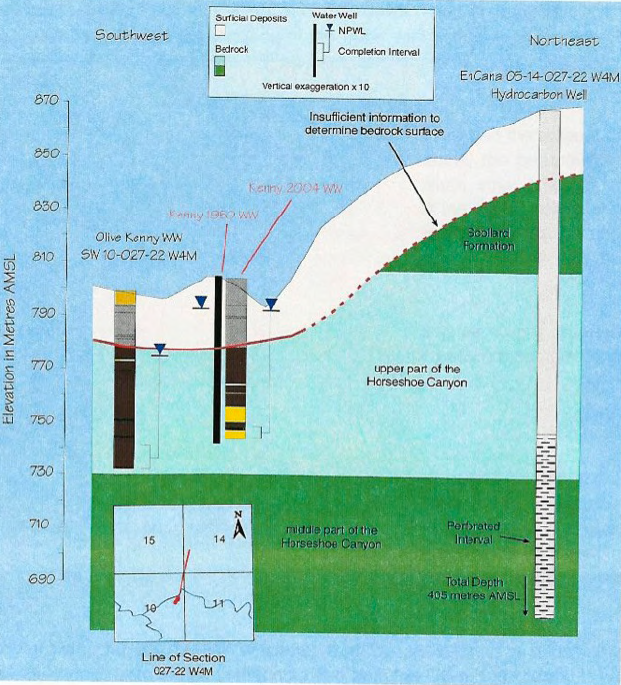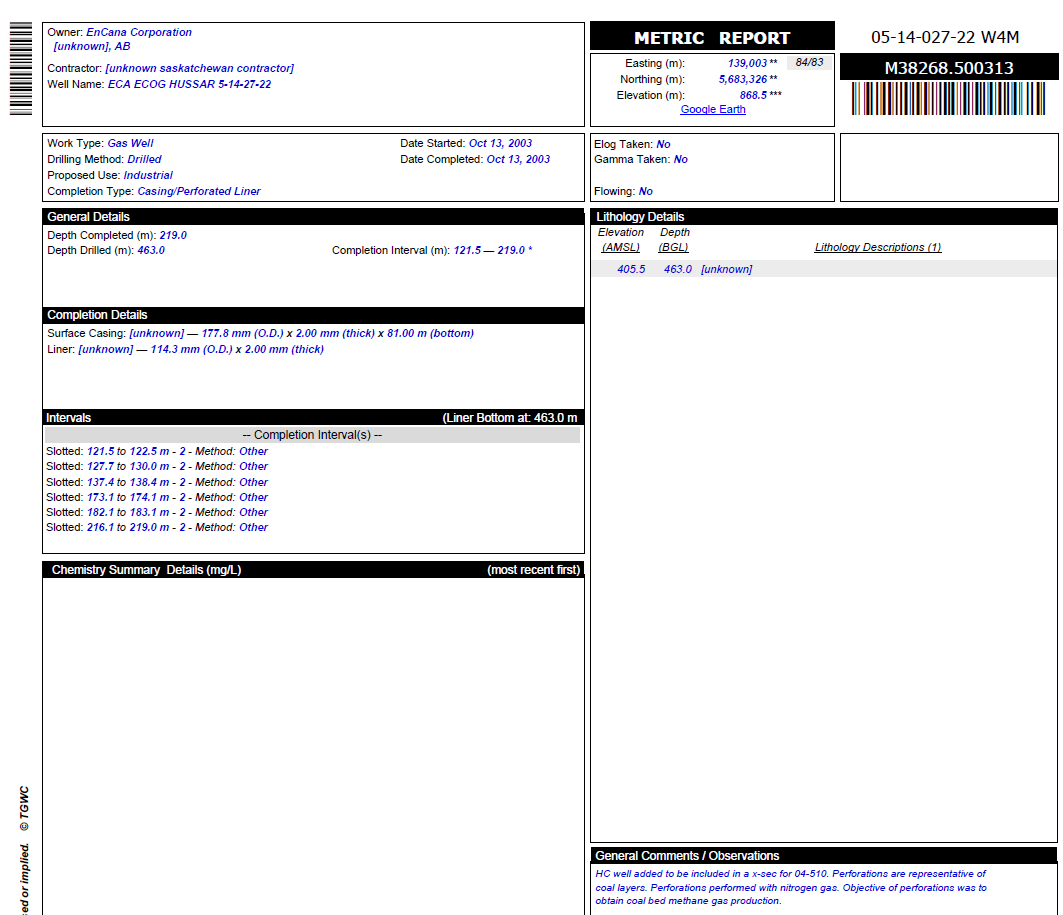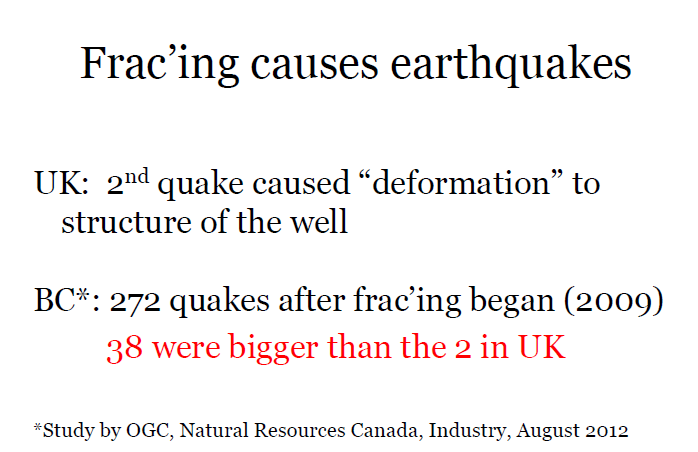How dangerous is hydraulic fracturing? by Alexandra Rabbitte, November 16, 2012, The Calgary Journal
Fears only ‘theoretical’ says Energy Resource Conservation Board member “The concern is that when we are fracking the rock that it will crack right up and release hydrocarbon into the surface water, and that’s the water people use for irrigation and for drinking, ” said Annelise Freeman, a senior geologist at PetroFrontier. But what are the chances of that actually happening? “It’s not going to happen,” maintained Freeman. Nevertheless, groups around the world are petitioning and protesting to stop fracking due to claims of drinking water being affected when fracking has occurred nearby. An advocacy group, called the Council of Canadians, has created a petition to ban fracking in Canada called “Don’t Frack With Our Water” which has received approximately 10,000 signatures before being delivered to Peter Kent, Minister of the Environment for Canada. “We wanted to represent the number of people who have voiced their concern. We don’t believe that fracking can be done safely,” said Emma Lui, a water campaigner with the Council of Canadians based out of Ottawa. “We’re calling for a ban, but at the very least, we don’t know enough about the immediate impacts, what chemicals are being dumped into the water and what that’s going to mean 20 years down the road,” Lui said, “I think we need more information on that at the very least.”
In terms of the chemicals being injected into the ground, Brad McManus, vice chair of the Energy Resource Conservation Board in Alberta, said that plans are currently being made to provide the public with more transparency of the chemicals being used. “People are concerned about that and there are initiatives to provide more transparency on what are the chemicals being pumped down there,” he said. “There is some proprietary interest; people develop the components that they think work best and so they are reluctant to share that, not because they’re trying to hide any adverse consequence, but they are trying to keep their proprietary advantage.” Freeman said, “The chemicals injected into the ground are no worse than using fertilizer...or by cleaning your coffee machine with CLR.”
With several of the protests on fracking going on outside of Alberta, and with Alberta’s oil sands being a current target for public scrutiny, it makes one wonder how much of the fracking fears are reasonable. “I don’t think there have been any incidents in Alberta where fracking has adversely affected a water table, or adversely impacted people’s wells,” McManus said. “In Alberta you’re only allowed to frack so close to a well or a water table. In other jurisdictions, the formations might not be as deep so you could be running more risk of fracking closer to a water table,” McManus explained. “There’s obviously been incidents that concern people, but it’s a theoretical fear. They read about them and hear about problems in other jurisdictions and think this could happen or that could happen. It’s fairly easy to get people concerned when you tell them what could happen.”
Lui also brought up the BC Oil and Gas Commission’s August 2012 report stating that there was a link between earthquakes and nearby fracking activity at the Horn River Basin in Northeastern British Columbia. But PetroFrontier’s Freeman said, “There were already a lot of pre-existing faults that have been there since mountain building time. Injecting water can cause problems within the fault lanes. It is definitely a possibility. I don’t know if there can be sustained earthquakes though, once you stop the fracking the earthquakes would stop. In Alberta this problem wouldn’t exist because we don’t have those slide planes.”
Hydraulic fracturing has been a technique used in Alberta since the 1950s and is widely used to extract hydrocarbon from shale rock formations and tight gas formations. As far as McManus, who has worked for the ERCB for 15 years knows, there have been no known incidents of surface water being adversely affected in Alberta, and certainly none that have caused any earthquakes. “There’s still a considerable amount of concern and its very understandable. I think when people realize the kind of regulatory framework we have and the restrictions that we have and the protections in place that they would feel a lot better,” McManus said. [Emphasis added]
[Refer also to: Gas in water Fracking Canada Community Voice: The Campbells
‘More Facts, Less Friction’ and ‘Fact or fiction’ – what’s the fracking truth?
Fingerprinting of gas contaminating groundwater and soil in a petroliferous region, Alberta, Canada
EnCana’s Multiple Shallow Fracs into Fresh Water Aquifers at Rosebud, Alberta, March 2004
Source: EnCana Corporation Site Investigation Report by Hydrogeological Consultants Ltd.
File No.: 04-510, January 2005
Source: Alberta Groundwater Centre In 1979, The Groundwater Centre started the process of merging the AENV (Alberta Environment) GIC database with its own database. This process allowed The Groundwater Centre to dramatically upgrade the existing AENV groundwater dataset.
Source: Slide from Ernst presentation From Cape Town to the Yukon in Whitehorse, September 22, 2012
Investigation of Observed Seismicity in the Horn River Basin



